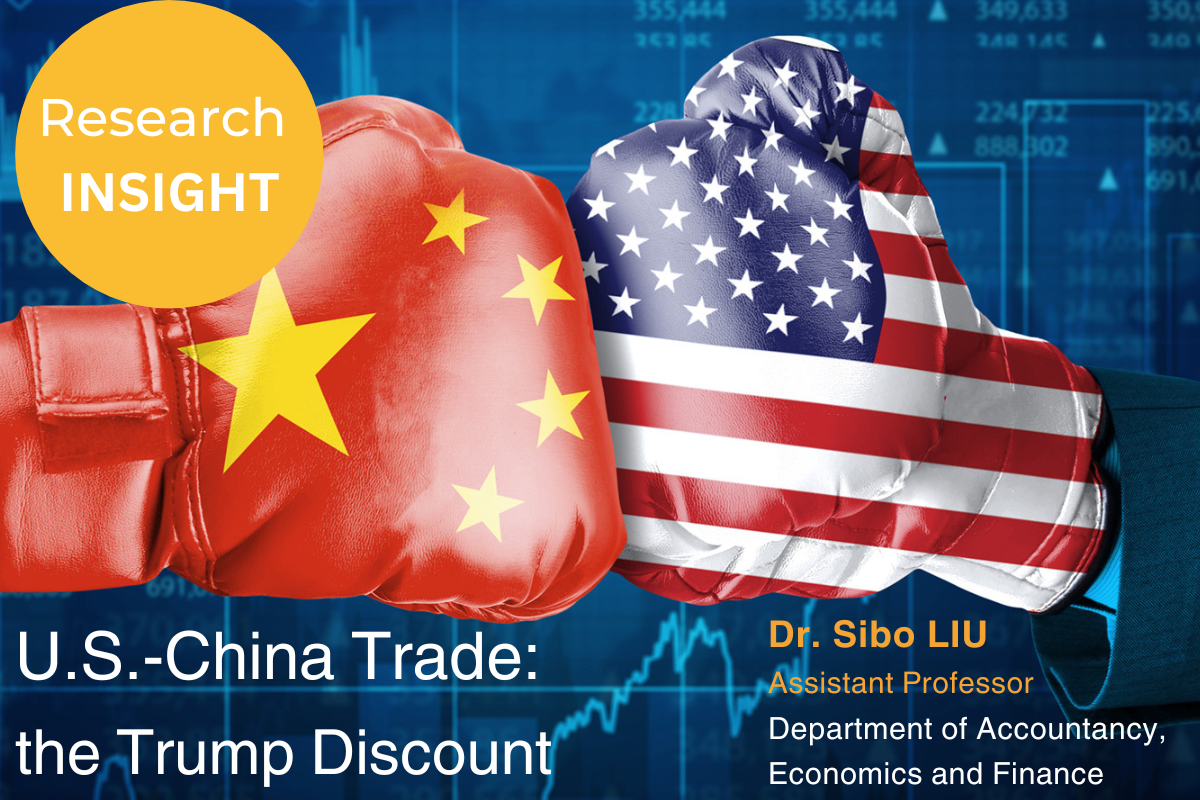School of business - research
U.S.-China trade: the Trump discount
By Dr. Sibo LIU


Since Donald Trump’s 2016 election, the U.S. and China have been locked in a fierce trade dispute, culminating in the imposition of tariffs on Chinese imports between 2018-2019. With the possibility of Trump reclaiming the presidency in 2024, will history repeat itself? Moreover, did these tariffs have any impact anyway? Fortunately, a recent research paper[1] dives into how this strained relationship between these economic powerhouses has affected the value of firms active in the U.S.-China trading ecosystem.
Ever since the Berlin Wall fell, globalization has fundamentally transformed the dynamics of economic activity. This transformation brought about intricate global supply chains, making nations more vulnerable to external shocks – a reality most recently made apparent by the disruptive impact of the COVID-19 pandemic. Similarly, the abrupt shifts in trade barriers triggered by the U.S.-China trade war since March 2018 have presented a unique real-world experiment for studying the effects of policy shocks on firms linked to global supply chains.
Analysing stock price movements of listed American and Chinese firms, their sales to China, exposure to Chinese imports, and the China exposure of their suppliers and buyers during key phases of the U.S.-China trade war — particularly the announcement dates of tariffs and counter-tariffs by both nations — the research shows that firms with significant Chinese sales experienced a 1.1% lower return over a three-day window than others. Furthermore, investors were quick to sell shares of exporters dependent on domestic suppliers or buyers with significant revenue from China, as well as the stocks of importers of Chinese goods. These companies not only saw their stock prices plummet more sharply than those with minimal China exposure but were also perceived as more likely to default. A similar trend emerged among Chinese-listed firms: those with greater exposure to the America-China trade saw their value decline as investors redirected their money to other alternatives.
Interestingly, U.S. exporters with high research and development (R&D) expenses were less affected. Conversely, the share prices of companies reliant on differentiated inputs from China also dropped. This underscores the critical role of product substitution and switching costs within supply chains when evaluating the effects of sudden trade policy shifts. Since finding alternatives can be costly, the impact of such shocks on firms' value was amplified. These trends were further validated by the fact that positive news, such as the resumption of trade talks between the two nations, led to a sharp rise in the value of firms more exposed to U.S.-China trade.
As the next American election looms, investors might find it prudent to dust off their old playbooks (or rewatch The Apprentice) and prepare to place their bets. Mind you, even if Trump were to win, the only certainty may well be more uncertainty!
Reference:
[1] Huang, Y., Lin, C., Liu, S., & Tang, H. (2023, November). “Trade networks and firm value: Evidence from the U.S.-China trade war.” Journal of International Economics, 145, 103811. https://doi.org/10.1016/j.jinteco.2023.103811